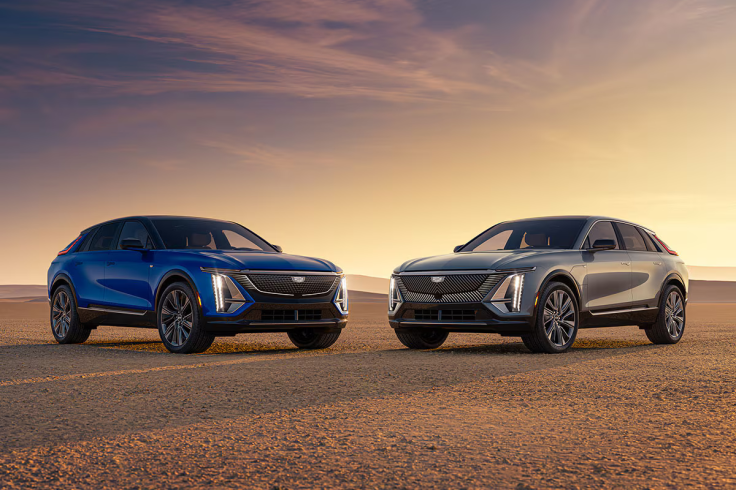2026 Cadillac Lyriq Now Offered At A 'Discount' - Is This The End Of Iconic Brand?

The 2026 Cadillac Lyriq's lease 'discount' at £413 ($559) monthly may look appealing at first glance, but it is sparking concerns across the UK EV market. With ownership costs climbing to £3,350 ($5,153) annually, families are being forced to rethink personal finance and planning.
How 2026 Lyriq Lease 'Discount' Impacts UK EV Buyers' Wallets
The 2026 Cadillac Lyriq Luxury RWD lease starts at £413 ($559) monthly for 36 months, with £3,129 ($4,799) due at signing. Based on a £39,520 ($60,695) MSRP, this equates to an effective monthly cost of £451 ($692) before taxes.
This 'discount' appears less competitive than the 2025 model's £345 ($529) equivalent, raising concerns for UK buyers already grappling with import duties and a weakening pound.
According to CarsDirect, this lease structure relies on inflated residuals to mimic a £4,888 ($7,500) US tax credit via leasing loopholes, an approach that does not translate well for the UK market. UK families must factor in VAT at 20% on public EV charging, adding an estimated £85 million ($130 million) nationally in 2025 per Zapmap analysis.
With ONS data showing average household disposable income at £34,468 ($52,900) annually, such deals strain budgets, especially for multi-car households planning a full EV transition.
EV Ownership Costs Surge 4.1%, Families Feel the Pinch



UK car ownership now averages £3,357 ($5,153) yearly in 2025, up 4.1% from 2020 according to NimbleFins analysis of ONS Family Spending data. Fuel or charging leads the expense list at £1,000+ ($1,534) annually. While EVs offer long-term savings of £1,500 ($2,302) compared to petrol, upfront costs remain steep, averaging £49,790 ($76,400) per Autotrader.
Insurance premiums have risen to £621 ($953) yearly amid 27% hikes, while repairs hit £500 ($768) due to specialist EV servicing. For families, GOV.UK's Electric Car Grant offers up to £3,750 ($5,762) off eligible models under £37,000 ($56,800), covering 28 vehicles like Ford Puma Gen-E as of August 2025 .
Yet, 37% of consumers cite upfront costs as a barrier, per EY's Mobility Consumer Index, complicating household planning with rising child-related expenses.
UK families considering electric vehicles like the 2026 Cadillac Lyriq can soften the financial blow with smart planning. Government grants shave £3,750 ($5,762) off qualifying models, making compact electric SUVs viable for budget-conscious households.
Using budgeting apps helps track annual charging costs, roughly £1,000 ($1,534), aligning expenses with family savings goals, especially when balancing school or childcare expenses. Shopping around for lease deals reveals options more affordable than the Lyriq's £451 ($692) monthly effective rate, which feels steep amid rising car ownership costs.
EVs promise £1,500 ($2,302) savings over petrol cars long-term, but high upfront prices demand careful financial planning.
What The Lyriq 'Deals' Really Reveal
The 2026 Cadillac Lyriq-V ✨
— Kim Java (@ItsKimJava) August 25, 2025
This car makes me want to slow down and take it all in…
But with a 3.3s 0–60, slowing down isn’t really an option.
Would you take it easy in style—or put all that power to the test? @Cadillac pic.twitter.com/ZflShxWq9L
Cadillac's Lyriq lease, verified by @ItsKimJava on X as a stylish yet pricey EV with 3.3-second 0-60 potential in V-trim, underscores brand challenges amid UK EV sales hitting 21.5% market share in 2025 per Zapmap.
ONS reports 1.6 million EVs on UK roads by July, quadruple the 2021 figure. Yet BBC notes average EV prices at £49,790 ($76,400) versus £34,225 ($52,500) for petrol, deterring many buyers. NS&I's savings trends show households allocating 5% of budgets to vehicles, and GOV.UK's £195 ($299) VED for EVs from April 2025 adds £600 ($921) yearly for pricier models via the Expensive Car Supplement.
As SMMT forecasts 28% BEV share, Lyriq's 'discount'—effectively a £20 ($30) premium over the 2025 model—hints at Cadillac's eroding luxury appeal, per CarsDirect, urging families to prioritise affordable grants over imports.
About one in five buyers plans an EV purchase by 2026, reflecting growing interest. Choosing home or local charging stations reduces reliance on pricier public networks, which add significant costs yearly. Families can further stretch budgets by prioritising smaller EVs or used models, which often qualify for grants and offer lower running costs.
© Copyright IBTimes 2025. All rights reserved.





















